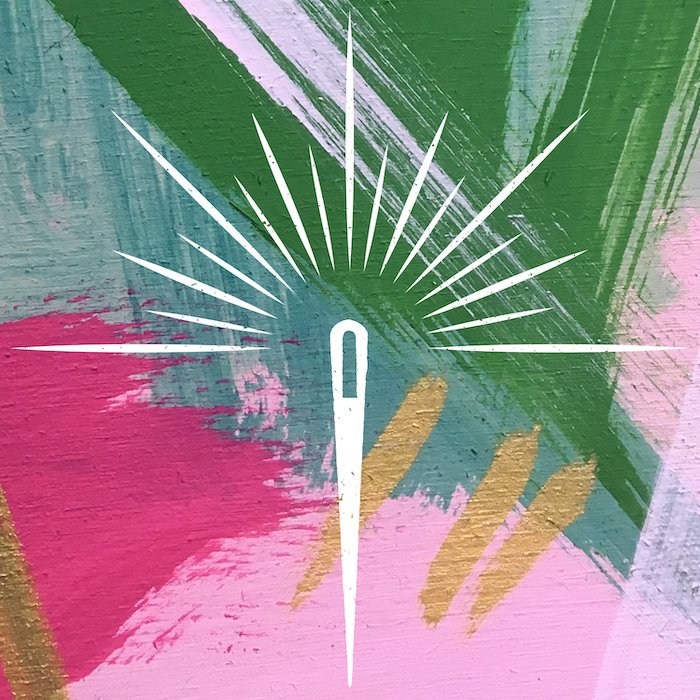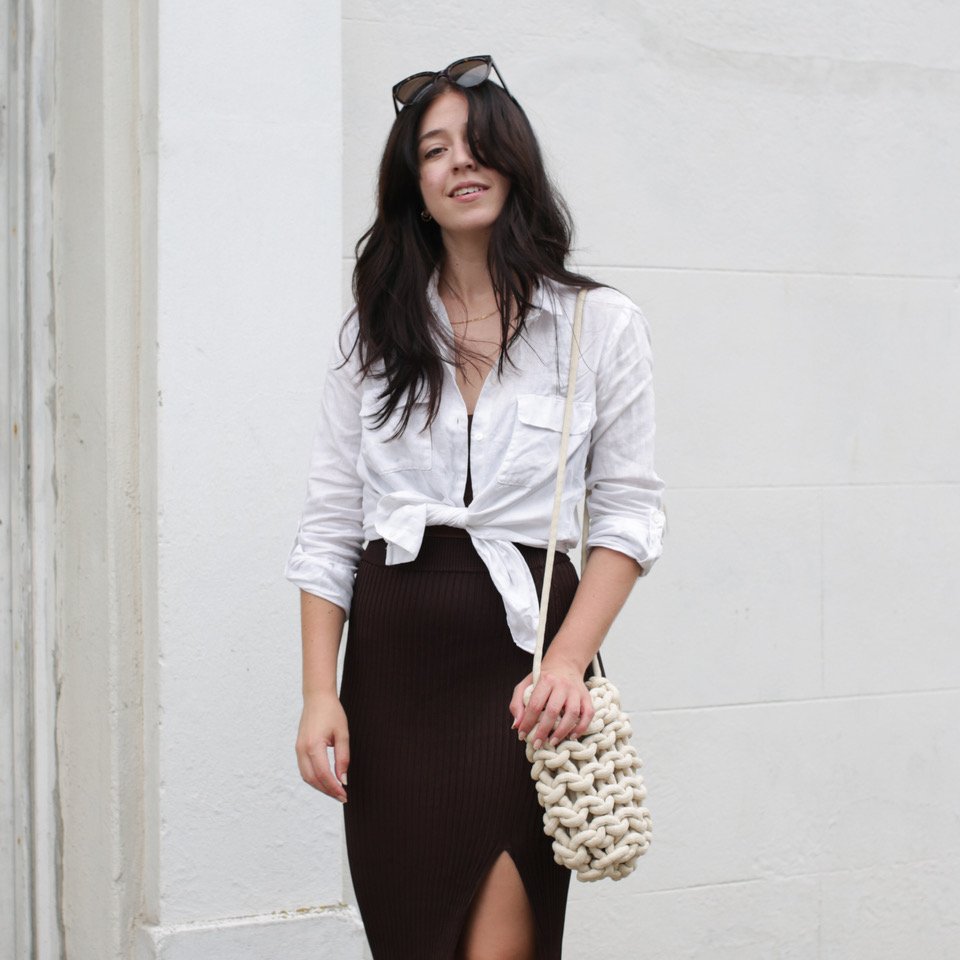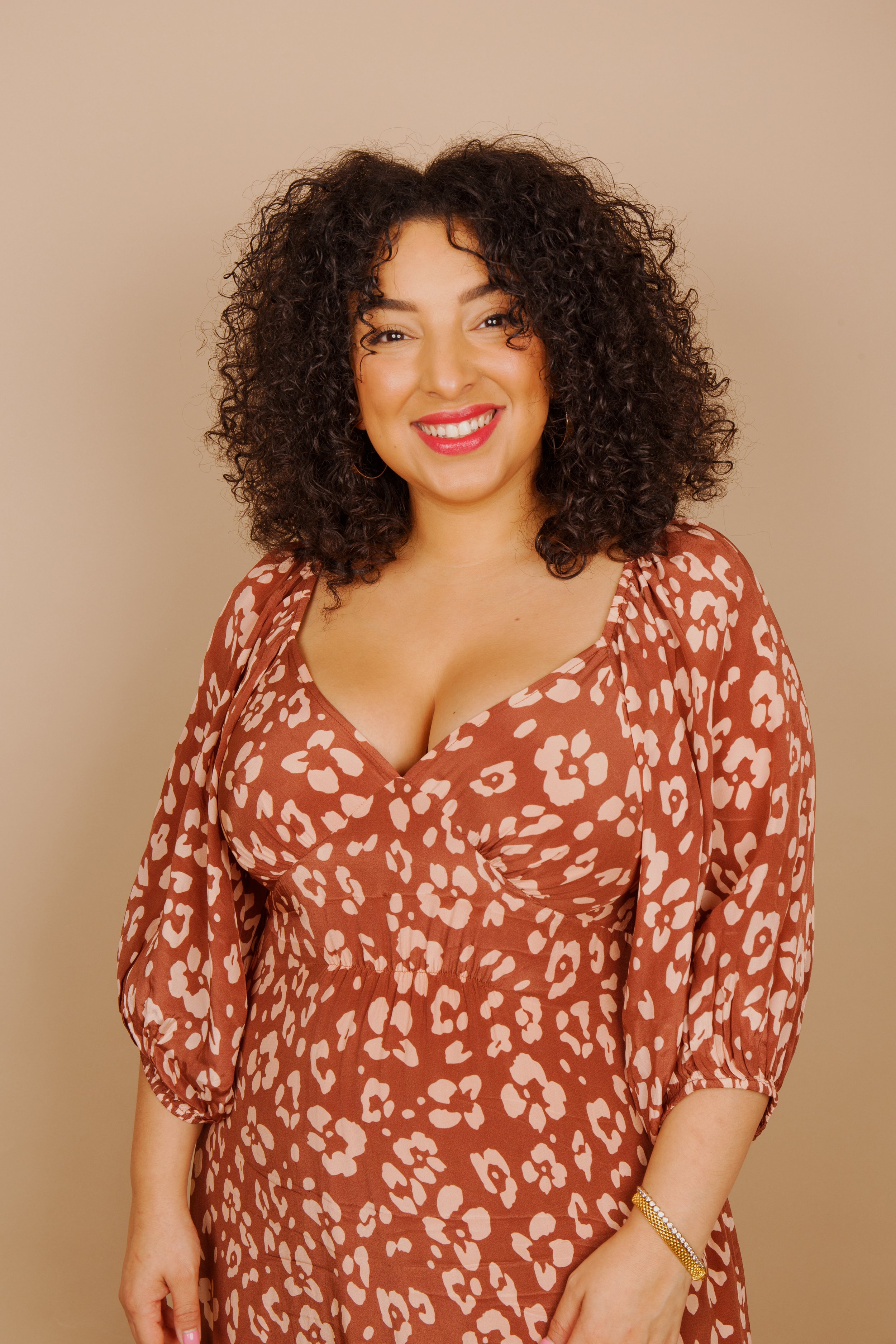
RECONNECTION
THE SUSTAINABLE FASHION WEEK PODCAST
SERIES ONE NOW AVAILABLE!
SFW has teamed up with presenter Louise Gookey to launch a podcast series exploring our relationship with fashion, and how we can positively reconnect with how we buy, wear, care and dispose of our clothing.
The aim is to empower and inspire through a series of relaxed conversations, exploring the experience, knowledge and advice of our guests. To create a space for listeners where everyone is welcome, no matter where they are on their sustainable fashion journey.
With guests including:
Patrick Grant // Community Clothing
Dr Brett Staniland // @twinbrett
Dr Dion Terrelonge // The Fashion Psychologist
Bianca Foley // Sustainably Influenced
Tasha Nickson // Soil Association Certification
Besma Whayeb // Curiously Conscious
DR DION TERRELONGE // The Fashion Psychologist > Dion is a Fashion Psychologist who advocates for sustainability. She shares psychological insight regarding consumerism and our personal relationships to fashion to help individuals increase understanding of their own habits. Dion previously lectured in Fashion Psychology at UAL, delivers talks on Fashion Psychology, features on podcasts, in media publications including Dazed, Stylist, and Vogue, and recently was the resident expert for a sustainable fashion show for the BBC. Dion is also the founder of the psychologically informed consultancy, the Style and Wellbeing Consultancy.
PATRICK GRANT // Community Clothing > Patrick has a lot to say about clothes; how many we buy, how we value them, what they’re made from, and importantly who made them and where. His campaigning clothes brand Community Clothing supports local clothing and textile manufacturers across the UK and Patrick is an outspoken advocate for radical change in the fashion industry. He is a regular on TV and Radio being best known for his role on the hit BBC series The Great British Sewing Bee. His new book LESS was published by Harper Collins in May 2024 and was an instant Sunday Times bestseller!
BIANCA-FRANCESCA FOLEY // Sustainably Influenced > Bianca is the founder & editor-in-chief of the platform Sustainably Influenced, presenter, podcast host and sustainability consultant. She has worked with many brands including PUMA, COACH and Monica Vinader; and hosts Sustainably Influenced the podcast, where she discusses how we can all do more to include more ethical practices in all aspects of daily life.
BESMA WHAYEB // Curiously Conscious > Besma is a sustainable fashion writer and creator, dedicated to finding kinder ways to live and dress. On her blog, Curiously Conscious, she shares her timeless style alongside deep-dives into the latest fashion news, trends, and sustainability reports. She is also the Founder of the Ethical Influencers network, connecting 1,300+ content creators globally.
TASHA NICKSON // Senior Certification Officer at Soil Association Certification > Tasha is expert in the Global Organic Textiles Standard (GOTS) and its evolving requirements. She works closely with a wide range of GOTS certified businesses, from UK organic wool traders through international fashion houses, providing expertise and support through their certification and sustainability journeys. Tasha's broader industry experience includes in house technical expertise at organic focused brands, including Lucy and Yak and The Hemp Trading Company.
DR BRETT STANILAND // Sustainable Fashion Campaigner > Brett is a model turned sustainable fashion campaigner. He’s an advocate for a slower, more responsible fashion industry and works across many platforms to raise awareness and educate consumers as an expert in the field. In 2021 he became the first contestant on Love Island to reject the fast fashion sponsorship and helped influence the shift toward preloved clothing. Whilst still modelling he also works as a creator, editor, consultant and speaker, covering issues in the fashion industry, innovative solutions and the fashion week circuits. He recently launched his ethos of 12 items a year, to oppose the current overconsumption of fashion.
Q&A with Louise:
Where do you think fashion is heading and what can we do to shift the trajectory?
Fashion seems to be heading towards the extremes. On one hand, fast fashion companies with very questionable ethics are getting stronger, but on the other, there is a growing demand for transparency and ethical practices.
It is great to see the demand growing but it's unfair to place all the responsibility on consumers, especially with the amount of greenwashing in the fashion industry. So both a bottom-up and top-down approach is needed, with standards set in law and regulations in place on proper labelling, marketing and production standards.
But the massive shift in attitude towards second hand shopping and more transparency on a lot of websites is making it easier than ever to buy more sustainably.
We need to keep talking, sharing information, and putting pressure on those in power to make changes for a more ethical fashion industry.
The damage fashion causes is much more frequently spoken about in the media these days, but do we talk about it enough in our relationships?
My experience of this is probably a little biased…I talk about it a lot with friends, family, and colleagues! However, I imagine that, broadly speaking, it isn’t a common topic in relationships even if the awareness is greater.
I would love to hear fashion production discussed more in mainstream conversations and in the education system. It would be great for it to become a household topic - where we can share both information and solutions.
Do you think collective action starts with information or inspiration?
Probably both, we all learn in different ways, but I certainly believe one complements the other. Some people are facts and stats driven which is amazing... I am not that person! For me, I need stories and visuals which are then backed up with stats.
If we think about urgently changing our collective fashion habits, what information do you think would be the key to changing more mindsets?
Fundamentally we need to shop less, there are an insane amount of clothes in this world, enough to clothe the next 6 generations and billions more get made every year. And with some of the worst quality clothing being made from synthetic fibres which don’t biodegrade - it is just unsustainable.
Having a platform with practical steps on how to make changes would be helpful, as not everyone has the time to research or the money to invest in high-end sustainable brands. Making sure there are practical and attainable ways for everyone to join the journey. That’s why things like swap shops, Vinted, Depop, and second-hand shopping becoming fashionable are amazing.
I also love Dr. Brett Staniland’s campaign (@twinbrett), where we only buy 12 new items a year, one per month, similar to how people used to shop before fast fashion. The aim is to buy less and buy better, giving us a goal to work towards.
Understanding the psychology of shopping and fast fashion is another area to explore. Learning about the control it can have on us, similar to an addiction, can make breaking away so much easier. It’s freeing to walk down the high street without any desire to shop - something I couldn’t have imagined 10 years ago.
Reaching as many people as possible in as many ways as possible is also key. The media, social media, content creators, and celebrities all have a huge impact. For example, Claudia Jessie from Bridgerton wore the same Stella McCartney suit on more than one red carpet to promote Season 3 ... and because she is who she is, it reached loads of media outlets - what an icon.
On a community level, swap shops, sewing clubs, and sustainable fashion events are becoming more popular. I hope we can keep the momentum and build communities in our local areas to ensure unwanted clothes go to new homes, old textiles are recycled properly, and we care for and respect the items we’ve spent our money on.
What would you like to do with the Reconnection: Sustainable Fashion Week Podcast, to have impact?
I am keen to create a safe space for everyone, no matter where they are on their sustainable fashion journey. Whether they are totally new to the subject or fully invested, I want it to be a place that is accessible, educational, and fun. There are so many elements to ‘sustainable’ fashion, so breaking it down, exploring different areas, and creating a resource for anyone who wants to know more would be a dream. Essentially, I would love for everyone who has an interest in sustainable fashion to feel welcome.













